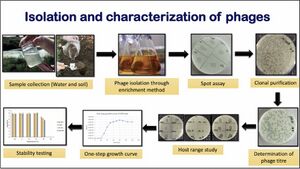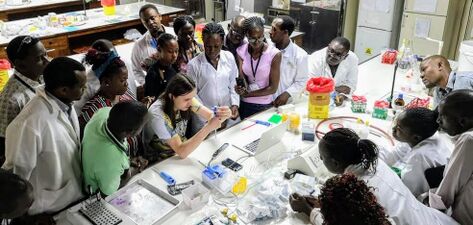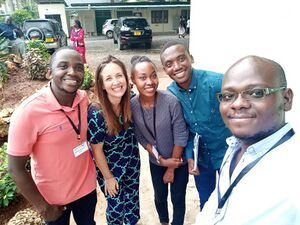Combating Antibiotic Resistance in Africa and Asia: Difference between revisions
No edit summary |
(Updated projects) |
||
| (2 intermediate revisions by the same user not shown) | |||
| Line 24: | Line 24: | ||
=Project Gallery= | =Project Gallery= | ||
|Problems= | |Problems=205024,203779 | ||
|Solutions=203781 | |||
|organization_id=133410 | |organization_id=133410 | ||
|Region=Malaysia | |Region=Malaysia | ||
| Line 31: | Line 32: | ||
|scraped_from=GlobalGiving | |scraped_from=GlobalGiving | ||
|feature_image=File:Heera_lecture_phage_characterization_Large.jpg|Some topics covered during the workshop | |feature_image=File:Heera_lecture_phage_characterization_Large.jpg|Some topics covered during the workshop | ||
|images=[[ | |images=[[File:ph_54735_213842.jpg|,File:ph_54735_213843.jpg|,File:Tobi_announcing_phage_bank_meeting_CROPPED_2_Large.jpg|Tobi at the Viruses of Microbes conference,File:Final_session_everyone_names_removed_Large.jpg|Final session of the phage workshop,]] | ||
|coordinate=, | |coordinate=, | ||
|geo_id=1733045}} | |geo_id=1733045}} | ||
Latest revision as of 11:35, 5 August 2023
| Organization | Phages for Global Health |
|---|---|
| Region | Malaysia |
| Website | Website |
| N/A | |
| N/A | |
| ProjectLeader | Tobi Nagel |
| Linked Problems & Solutions
|
|---|
Antibiotic-resistant infections are predicted to kill 10 million people each year by 2050 -- five times more than the roughly 2 million deaths caused by COVID-19 in 2020. Thus, we urgently need antibiotic alternatives, particularly in Africa and Asia where 90% of the antibiotic-resistant deaths will occur. Phages for Global Health empowers scientists in Africa and Asia to develop inexpensive, natural antibiotic alternatives (phages) that can kill antibiotic-resistant bacteria.
Challenge
The antibiotic resistance crisis disproportionately impacts developing countries, and misuse of antibiotics in COVID-19 patients is expected to increase antibiotic resistance rates worldwide. Before antibiotics were discovered, phages were used as antibacterial agents. With few other treatment options available now, phage-based drugs are regaining popularity in industrialized nations, but most researchers in developing countries lack the expertise to develop and utilize them effectively.
Long-Term Impact
Since 2017 we have delivered 4 in-person workshops in Africa, teaching scientists how to isolate phages. Those trainees have now started >50 phage research projects, won grants totaling to >$945,000, and taught phage biology to 1200 others -- rapid scaling! In 2022 we will run our first virtual workshop, specifically for scientists in Southeast Asia. Since phages can kill antibiotic-resistant bacteria in food, livestock and people, all this work could save thousands of lives, if not millions.
References
- http://phagesforglobalhealth.org/
- https://www.theguardian.com/global-development/2020/sep/21/phages-the-tiny-viruses-that-could-help-beat-superbugs
- https://www.youtube.com/watch?v=KQDiwCyyFII
- https://www.youtube.com/watch?v=YI3tsmFsrOg
- https://www.ncbi.nlm.nih.gov/pmc/articles/PMC4897794/pdf/fmicb-07-00882.pdf
Additional Documentation
https://www.ncbi.nlm.nih.gov/pmc/articles/PMC4897794/pdf/fmicb-07-00882.pdf
Project Gallery




